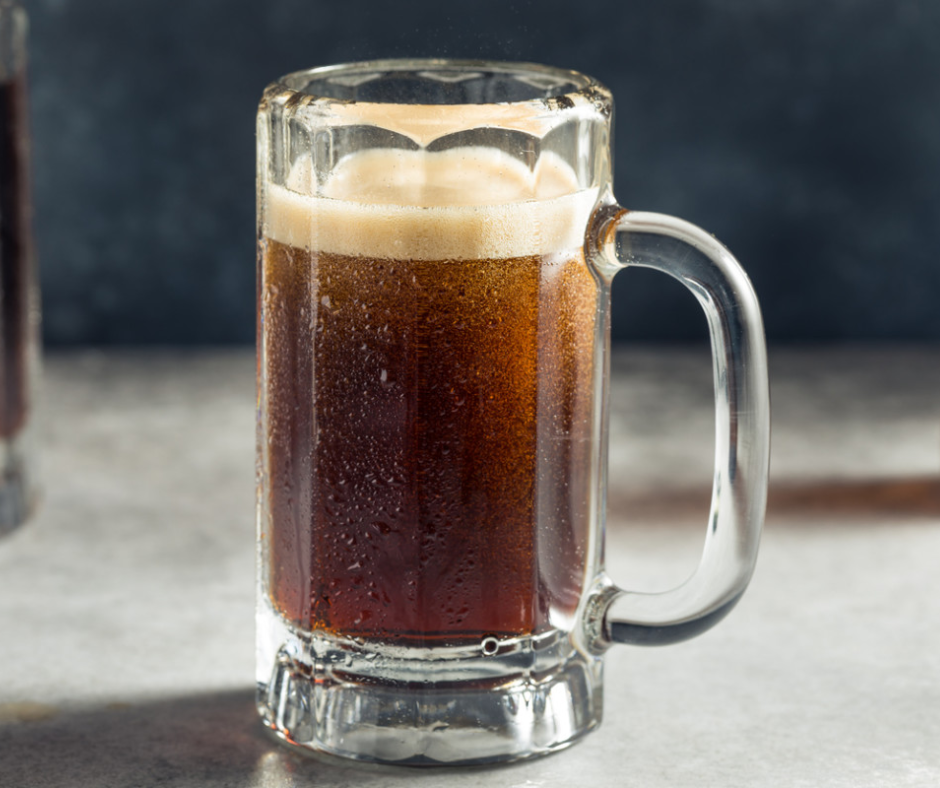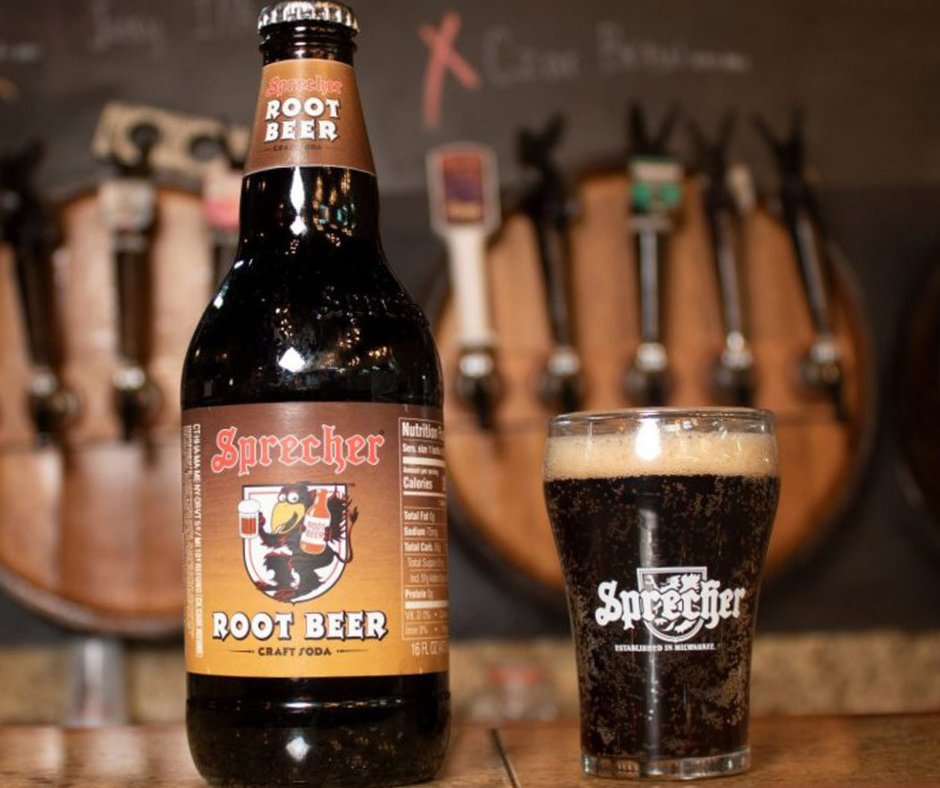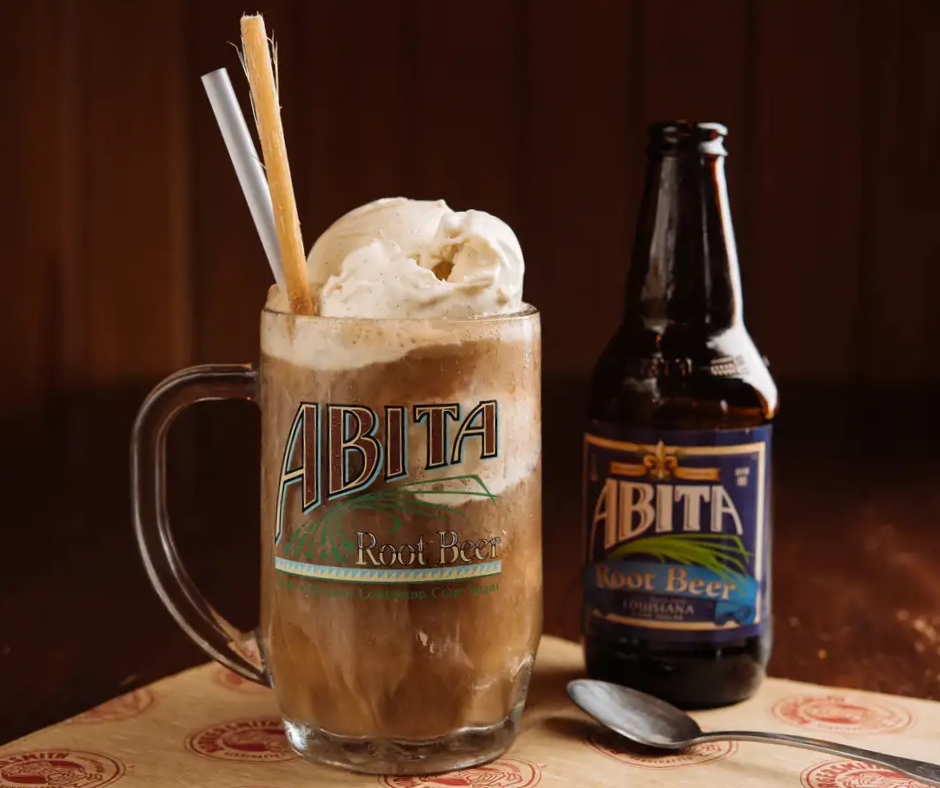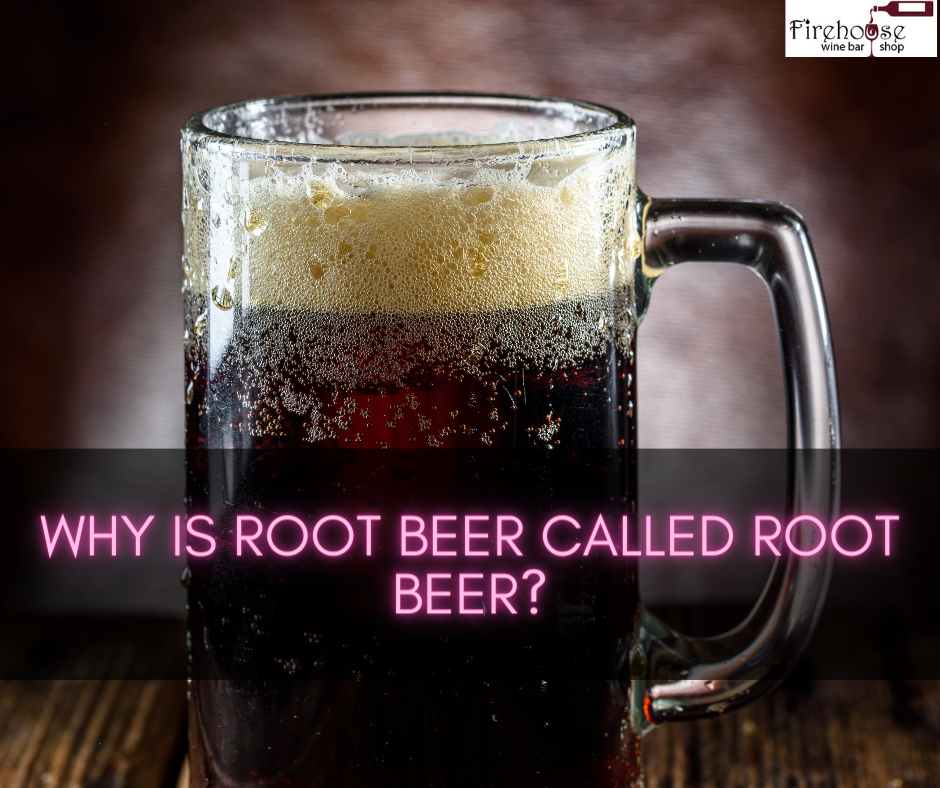Introduction
Root beer, a beloved beverage many love, has a fascinating history and a unique name. But Why Is Root Beer Called Root Beer? This article will delve into root beer’s origins, popularity, and the reason behind its name. Let’s uncover the intriguing story behind this delightful drink.

Introduction To The History And Popularity Of Root Beer
Root beer has a long and storied history dating back to America’s colonial times. It is believed to have evolved from traditional European recipes for fermented beverages made from roots, spices, and herbs. The settlers in America adapted these recipes with local ingredients, giving birth to what we now know as root beer.
Originally, root beer was made by fermenting various plant roots, such as sassafras, sarsaparilla, and birch. However, in the 19th century, a non-alcoholic version of root beer was developed, making it more accessible and appealing to a wider audience. This new version became especially popular during the temperance movement when people sought alternatives to alcoholic beverages.
Root beer gained further popularity in the United States during the Prohibition era when the production and sale of alcoholic drinks were banned. It became a go-to refreshment for individuals seeking a non-alcoholic “soda” experience.
As the beverage grew in popularity, various companies started producing their versions of root beer, each with its unique flavor profile and recipe. This led to the development of different regional styles of root beer, some emphasizing a strong sassafras flavor while others leaned towards sarsaparilla or other ingredients. Today, root beer can be found in many variations, catering to different tastes and preferences.
Unraveling The Name Behind The Beloved Beverage
Now, let’s uncover why root beer is called “root beer.” The name itself refers to the primary ingredient in its production – the roots. Traditionally, root beer was made by boiling the roots of various plants, extracting their flavors and medicinal properties, and then combining them with sweeteners and carbonation.
The term “beer” in root beer is not related to the alcoholic beverage. Instead, it refers to the fermentation process initially used to create root beer. However, modern root beers are typically non-alcoholic, and the fermentation step is replaced by carbonation.
The combination of flavors from different roots gives root beer its distinct taste. Sassafras root, in particular, was a common ingredient in traditional root beer and contributed to its unique flavor profile. However, due to concerns regarding the potential health risks associated with sassafras, many modern root beers now use artificial or natural flavorings as a safer alternative.
In conclusion, root beer has a rich history and has become a beloved beverage that people of all ages enjoy. Its name originated from using various roots and the brewing process it initially underwent. As it evolved, root beer became a non-alcoholic carbonated drink with a distinct and refreshing taste. So, the next time you take a sip of root beer, you can appreciate the fascinating story behind its name and its enduring popularity.
The Origins Of Root Beer
Explanation Of The Roots Of Root Beer And Its Original Ingredients
The name “root beer” might be misleading, as the beverage contains no beer. Instead, “root” refers to the primary ingredients used in its production. Root beer has a fascinating history that dates back to colonial times in America.
Originally, root beer was made by fermenting various plant roots, such as sassafras, sarsaparilla, and birch. These roots were boiled to extract their flavors and medicinal properties, and then they were combined with sweeteners and carbonation to create a flavorful and refreshing drink. The settlers in America adapted traditional European recipes for fermented beverages made from roots, spices, and herbs and used local ingredients to create their version of root beer.
The original ingredients of root beer gave it a distinct taste. Sassafras root, in particular, was a common ingredient and contributed to the unique flavor profile of the beverage. However, in the late 19th century, concerns about the potential health risks associated with sassafras led to the removal of the root from many root beer recipes. Nowadays, most root beers use artificial or natural sassafra flavorings as a safer alternative.
Over time, root beer became less about the fermentation process and more about the carbonation. In the 19th century, a non-alcoholic version of root beer was developed, making it more accessible and appealing to a wider audience. This new version became particularly popular during the temperance movement, as people sought alternatives to alcoholic beverages.
Root beer gained even more popularity during the Prohibition era when the production and sale of alcoholic drinks were banned. It became a go-to refreshment for individuals seeking a non-alcoholic “soda” experience.
As root beer grew in popularity, various companies started producing their versions with unique flavor profiles. This led to the development of different regional styles of root beer, some emphasizing a strong sassafras flavor while others leaned towards sarsaparilla or other ingredients. Today, root beer can be found in many variations, catering to different tastes and preferences.
In conclusion, the name “root beer” refers to the roots that were traditionally used in its production. It has a rich history and has evolved from a fermented beverage made with plant roots to a non-alcoholic carbonated drink with a distinct and refreshing taste. The flavors of roots like sassafras and sarsaparilla contributed to the original flavor profile of root beer, although modern recipes often use artificial or natural flavorings. Regardless of its roots, root beer remains a beloved beverage enjoyed by people of all ages, with its name serving as a nod to its traditional ingredients and brewing process.

The Naming Of Root Beer
Why Is Root Beer Called Root Beer?
The name “root beer” has puzzled many over the years. After all, the beverage doesn’t contain any beer. So, Why Is Root Beer Called Root Beer? To unravel the mystery behind the name, we must delve into the roots of root beer and its origins.
The term “root” in root beer refers to the primary ingredients used in its production. Traditionally, root beer was made by fermenting various plant roots, such as sassafras, sarsaparilla, and birch. These roots were boiled to extract their flavors and medicinal properties and then combined with sweeteners and carbonation to create a flavorful and refreshing drink.
During colonial times in America, settlers adapted traditional European recipes for fermented beverages made from roots, spices, and herbs, using local ingredients to create their version of root beer. The original ingredients gave root beer its distinct taste and character. Sassafras root, in particular, was a common ingredient and contributed to the unique flavor profile of the beverage.
However, concerns about the potential health risks of sassafras arose in the late 19th century. As a result, many root beer recipes started removing the root from their formulations. Nowadays, most root beers use artificial or natural sassafra flavorings as a safer alternative.
The shift from fermented roots to carbonation played a significant role in naming root beer. In the 19th century, a non-alcoholic version of root beer was developed, making it more accessible and appealing to a wider audience. As it became popular, the name “root beer” stuck, even though it no longer contained any beer or fermentation process.
Root beer gained further popularity during the Prohibition era when the production and sale of alcoholic drinks were banned. It became a go-to refreshment for individuals seeking a non-alcoholic alternative, resembling the soda experience they enjoyed before the ban.
The name “root beer” pays homage to the traditional ingredients rooted in plant roots and reflects its history as a non-alcoholic carbonated beverage. Over time, various companies started producing their versions of root beer, introducing different flavor profiles and regional styles. Some root beers leaned heavily on sassafras, while others focused on flavors like sarsaparilla or other ingredients.
In conclusion, root beer got its name from the roots traditionally used in its production and the shift from a fermented beverage to a non-alcoholic carbonated drink. Despite its name, root beer has evolved and diversified, offering different variations to cater to various tastes and preferences. So, the next time you enjoy a glass of root beer, remember its roots and the rich history behind its name.
The Evolution Of Root Beer
Discussion On How Root Beer Has Changed Over Time And The Ingredients Used Today
Root beer has come a long way since its origins as a fermented beverage made from various plant roots. Over time, it has evolved and diversified to become the beloved non-alcoholic carbonated drink we know today. Let’s delve into the journey of root beer and explore how it has changed over time, including the ingredients used in modern recipes.
In its early days, root beer was made by fermenting roots such as sassafras, sarsaparilla, and birch. These roots were boiled to extract their flavors and medicinal properties, creating a unique and flavorful beverage. However, concerns about the health risks associated with sassafras led to the removal of this ingredient from many root beer recipes in the late 19th century. Nowadays, most root beers use artificial or natural sassafra flavorings as a safer alternative.
The shift from using fermented roots to carbonation was a pivotal moment in the evolution of root beer. In the 19th century, a non-alcoholic version of root beer was developed, making it more accessible and appealing to a wider audience. This transition allowed root beer to become a go-to refreshment during America’s Prohibition era when the production and sale of alcoholic drinks were prohibited.
Today, root beer is typically made using a combination of flavorings, sweeteners, and carbonation. While traditional roots like sarsaparilla and birch are still used in some recipes, the flavor profile of modern root beer has expanded to include a wide range of botanicals, herbs, and spices. Each brand and region may have its unique twist, resulting in various flavor profiles and styles.
The ingredients used in root beer have also become more standardized to ensure safety and consistency. The Food and Drug Administration (FDA) regulates the use of certain ingredients and sets guidelines for producing root beer to meet health and safety standards.
It’s worth noting that the name “root beer” pays homage to the initial use of roots as the primary ingredients in its production. Despite the shift away from fermented roots, the name has stuck due to its historical significance and the brand recognition it has gained over the years.
In conclusion, root beer has evolved remarkably from its humble beginnings as a fermented beverage to the widely recognized non-alcoholic carbonated drink we enjoy today. While the ingredients and production methods have changed, the essence of root beer remains deeply rooted in its rich history. So, the next time you sip root beer, appreciate this beloved beverage’s journey and the variety of flavors.

Fun Facts About Root Beer
Interesting Tidbits And Trivia About Root Beer And Its Cultural Significance
Root beer has been a beloved beverage for generations with its distinct flavor and fizzy goodness. But have you ever wondered, ‘Why Is Root Beer Called Root Beer?’ Let’s unravel the name and explore interesting tidbits and trivia about this classic drink and its cultural significance.
The Name Root Beer
The name “root beer” pays homage to the early days of this beverage when it was made using a variety of plant roots. In its original form, root beer was a fermented beverage created by boiling roots such as sassafras, sarsaparilla, and birch. These roots were carefully selected for their distinct flavors and medicinal properties.
The word “beer” in the name comes from the brewing process used to make the early root beer. Fermentation was a common method for creating carbonated beverages before modern carbonation techniques were invented. While most modern root beers are no longer fermented, the name has stuck due to its historical significance and the association with brewing practices.
Cultural Significance
Root beer has become more than just a refreshing drink; it holds cultural significance in various parts of the world. Here are some interesting facts about root beer and its impact on different cultures:
- American Tradition: Root beer has deep roots in history and is considered a classic American beverage. It gained popularity during the Prohibition era in the United States when the production and sale of alcoholic drinks were banned. Root beer became a popular alternative, offering a sweet and bubbly refreshment that satisfied the thirst of many Americans during this time.
- Root Beer Float: One of the most iconic ways to enjoy root beer is by combining it with a scoop (or two) of vanilla ice cream. The root beer float, a “black cow,” is a delicious treat synonymous with summer and nostalgic memories for many people.
- Global Variations: While root beer is primarily associated with the United States, different countries have versions of this beverage. For example, the popular brand “Barq’s” is widely enjoyed in Canada. In Australia, a similar beverage called “sarsaparilla,” has similar flavors to root beer. These unique regional variations showcase this beloved drink’s widespread popularity and adaptability.
- Pop Culture References: Root beer has made its way into pop culture, featured in movies, TV shows, and even songs. Its presence in nostalgic settings and references has solidified its place as a symbol of American culture and childhood memories.
In conclusion, root beer has a rich history and cultural significance beyond its delicious taste. The name “root beer” reflects its origins as a fermented beverage made from plant roots, while its cultural impact has made it a beloved part of American tradition. So, the next time you enjoy a frosty mug of root beer, remember the fascinating roots behind its name and its cultural relevance. Cheers to the tasty and timeless beverage that is root beer!
Conclusion
Now you should know ‘Why Is Root Beer Called Root Beer?’. After delving into the fascinating world of root beer and its cultural significance, it is clear that this beloved beverage has a rich history and an intriguing name. The name “root beer” pays homage to its origins when it was made using a variety of plant roots. The brewing process used to create the early root beer involved fermentation, which is where the term “beer” comes from. Although most modern root beers are no longer fermented, the name persists due to its historical significance and association with brewing practices.
Root beer holds cultural significance in various parts of the world. In the United States, it became a popular alternative during the Prohibition era when the production and sale of alcoholic drinks were banned. Combining root beer with vanilla ice cream, root beer floats have become an iconic treat associated with summer and nostalgia. Different countries have their variations of root beer, showcasing its widespread popularity and adaptability. It has also become a part of pop culture, appearing in movies, TV shows, and songs, solidifying its place as a symbol of American culture and childhood memories.
In conclusion, the name “root beer” reflects its origins, brewed from plant roots and fermented in the past. Its cultural significance, versatility, and nostalgia have made it a beloved beverage worldwide. So, the next time you enjoy a frosty mug of root beer, remember the fascinating roots behind its name and its cultural relevance. Cheers to the tasty and timeless beverage that is root beer!
FAQ: Why Is Root Beer Called Root Beer – Root Beer Roots: Unraveling the Name Behind the Beloved Beverage
Q: What is root beer?
A: Root beer is a carbonated beverage known for its unique flavor, combining sweetness, herbal notes, and a hint of spice. It is enjoyed by many as a refreshing and nostalgic drink.
Q: Why Is Root Beer Called Root Beer?
A: Root beer got its name from its original recipes, which included a variety of roots, bark, and herbs as ingredients. The “root” in root beer refers to the botanicals used in production.
Q: What are some of the main ingredients in traditional root beer?
A: Traditional root beer recipes often included sassafras root, birch bark, ginger root, dandelion root, burdock root, wintergreen, and wild cherry bark. These ingredients contributed to the distinct flavors of the beverage.
Q: Is root beer made with alcohol?
A: In its early days, root beer was often brewed as a small beer, containing a low alcohol content ranging from 2% to 12% by volume. However, modern root beer is typically non-alcoholic, with very few commercially available varieties containing any alcohol.
Q: How was root beer made in the past?
A: In the past, root beer was brewed using fermentation, similar to how beer is made. It involved boiling the roots, bark, and herbs, adding sugar, and allowing the mixture to ferment. This process produced a mildly alcoholic beverage.
Q: Why is modern root beer usually non-alcoholic?
A: In the early 20th century, concerns about the potential health risks associated with the consumption of sassafras, a key ingredient in root beer, led to the banning of its use in food and beverages. As a result, the production of sassafras-free root beer became more popular, leading to the non-alcoholic versions commonly available today.
Q: Can you still find root beer with alcohol content?
A: While most commercially available root beers today are non-alcoholic, some brands still offer alcoholic versions. These alcoholic root beers are typically marketed as specialty products for adult consumers.
Q: What are other types of “root beers”?
A: In addition to root beer, there are other variations of similar beverages, such as birch beer, sarsaparilla beer, and ginger beer. These beverages were created using local ingredients and recipes, resulting in unique flavors and regional variations.
Q: Is root beer popular around the world?
A: Root beer is primarily popular in North America, especially in the United States and Canada, where it has become a nostalgic and beloved beverage. However, it is not as widely consumed or recognized in other parts of the world.
Q: How can I enjoy root beer today?
A: Root beer can be enjoyed in various ways. Some people prefer to drink it chilled from a bottle or can, while others enjoy it as a root beer float by adding a scoop of vanilla ice cream. Root beer can also be used as a cocktail base or in dessert recipes like root beer floats or cupcakes.
Overall, root beer is a beloved beverage with a rich history and a distinct flavor. Whether you enjoy it for its nostalgic appeal or you are simply curious about its roots, root beer continues to be a popular choice for those seeking a refreshing and unique drink.

Andre Lotz immigrated to the United States from South Africa almost 20 years ago. Still, he didn’t feel truly at home until he settled in Mobile—a city that reminds him of his childhood home of Fish Hoek on the southern cape of Africa.

